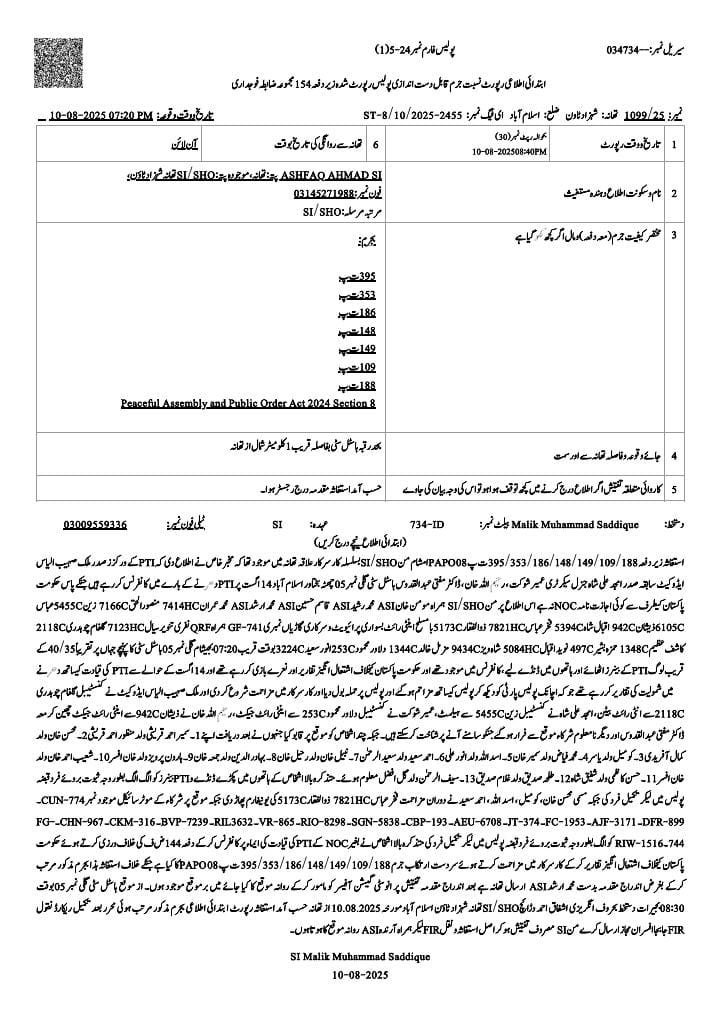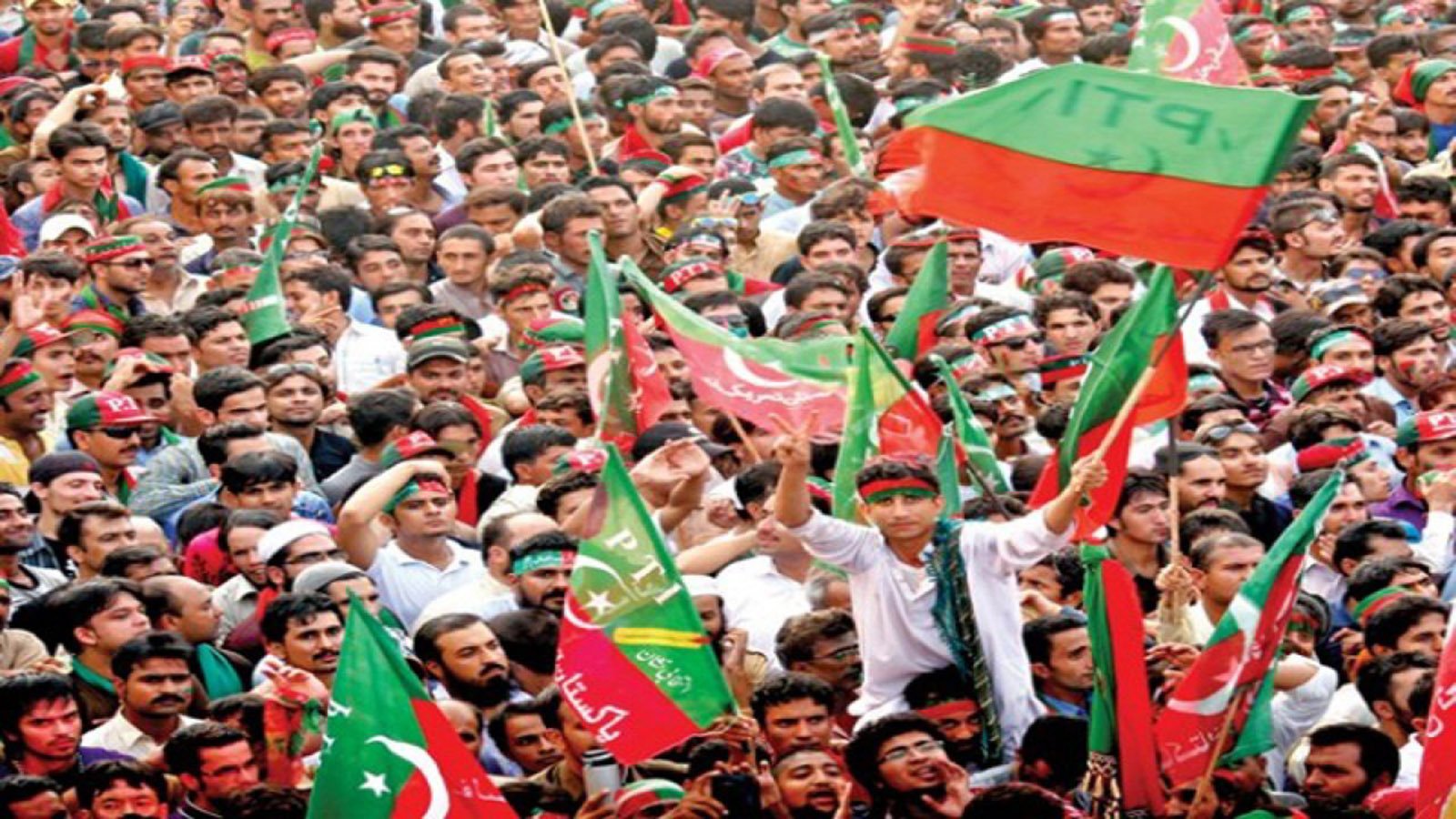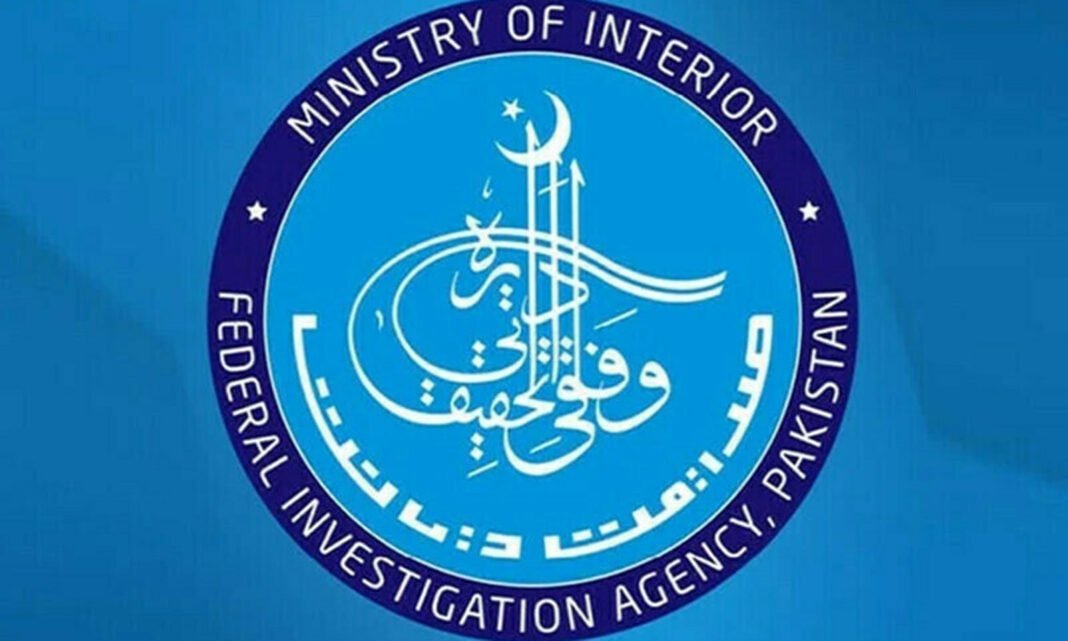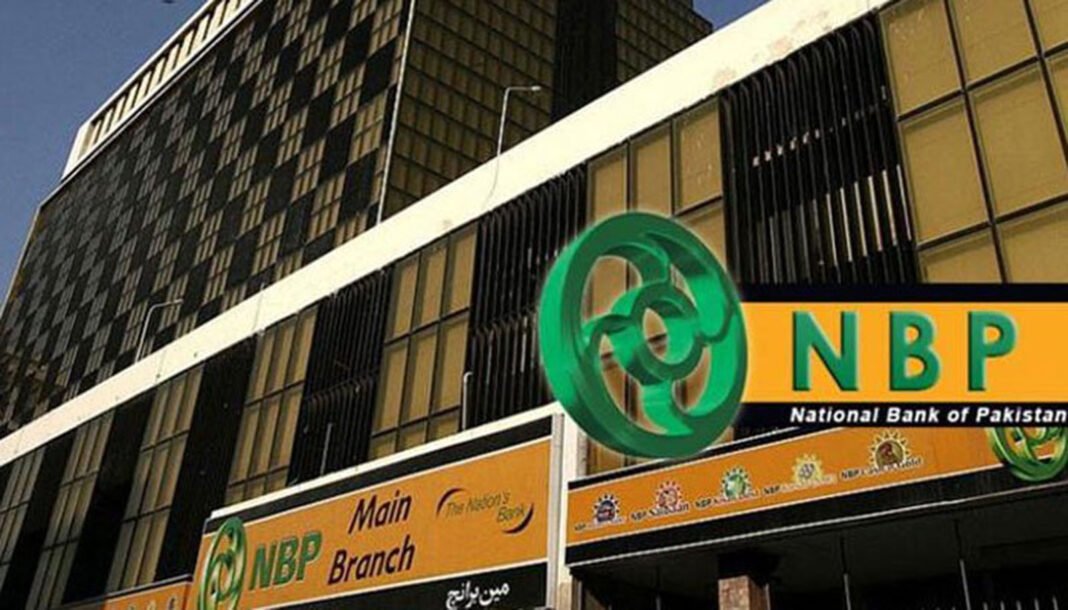A significant case has been registered in Islamabad against workers of Pakistan Tehreek-e-Insaf (PTI), marking yet another tense episode between law enforcement authorities and political activists. The case, lodged at Shahzad Town Police Station, carries serious allegations, including dacoity, obstruction of government work, and armed riot, alongside other charges under both the Pakistan Penal Code (PPC) and the Peaceful Assembly and Public Order Act, 2024. According to the First Information Report (FIR), the accused allegedly defied legal requirements for holding public rallies, resisted law enforcement efforts to disperse the gathering, and engaged in actions that, according to police, endangered public safety and order.
The FIR lists a number of PPC sections under which the accused have been booked. These include Section 395 for dacoity, Section 353 for assault or resistance to a public servant in the discharge of duty, Section 186 for obstructing public officials in the execution of their duties, Section 148 for rioting while armed with a deadly weapon, Section 149 for participation in an unlawful assembly with a common purpose, Section 109 for abetment, and Section 188 for disobedience to an order duly promulgated by a public servant. Moreover, Section 8 of the Peaceful Assembly and Public Order Act, 2024, has also been applied, which relates to organizing gatherings in violation of the prescribed legal framework.
According to the details provided in the police report, the incident took place when a police team, led by SHO Ashfaq Ahmed, was stationed in a specific area for routine duties. At approximately 8:30 pm on August 10, 2025, the officers received information about an unlawful gathering taking place nearby. The source indicated that the gathering comprised PTI workers who had organized a rally without obtaining the mandatory No Objection Certificate (NOC) from the authorities. Acting on this tip-off, the police team moved toward the location to verify and, if necessary, disperse the assembly in compliance with Section 144, which was in effect in the area at the time.

Upon arrival, the police reportedly found a group of individuals participating in the rally. The FIR alleges that these individuals obstructed the police from performing their duties, refused to disperse, and began shouting political slogans. According to the police account, matters quickly escalated when participants allegedly resorted to stone-pelting, creating chaos and panic among bystanders. The report further claims that the incident posed a significant risk to public peace, particularly because the rally was conducted without official permission and during a period when large gatherings were legally restricted to prevent disorder.
The FIR notes that several vehicles were found in possession of the participants, which were subsequently seized. The registration numbers of these vehicles have been recorded in the case file, potentially to assist in tracing the owners and establishing further evidence. Police sources state that the vehicles may have been used to transport participants or materials linked to the protest. While no direct mention is made of weapons being recovered in the FIR, the inclusion of Section 148 suggests that the police believe some participants were armed during the incident.
The case was registered on the formal complaint of Sub-Inspector Malik Muhammad Siddique. The FIR states that the decision to immediately register the case was taken on the instructions of the SHO, who was present at the scene and witnessed the events unfold. The complaint emphasizes that the accused were acting in defiance of lawful orders and in violation of the Peaceful Assembly and Public Order Act, 2024, which regulates the conditions under which public gatherings and demonstrations can take place. The Act requires prior approval from relevant authorities to ensure that rallies do not interfere with public safety, traffic flow, or the rights of other citizens.
The incident reflects a growing pattern of confrontations between political workers and law enforcement agencies in Pakistan, particularly during periods of heightened political tension. PTI rallies and gatherings have increasingly come under police scrutiny since the imposition of Section 144 in many parts of the country, a measure often justified by authorities on grounds of maintaining public order but criticized by opposition groups as a tool for curbing political expression.
From a legal standpoint, the inclusion of Section 395, which deals with dacoity, is significant because it is a non-bailable offense carrying severe penalties, including long-term imprisonment. This section is generally applied in cases involving robbery committed by a group of five or more people, often with the use of force or threat of violence. Its application in a political protest scenario may become a matter of legal contention, as defense lawyers are likely to challenge whether the alleged actions of the accused meet the threshold for such a grave charge. Similarly, Sections 353 and 186, related to obstructing and assaulting public servants, are common in cases involving clashes between protesters and police, but they still require substantial evidence, such as witness statements, video footage, or physical injuries to officers, to secure a conviction.
The authorities argue that strict action is necessary to deter unlawful assemblies that can spiral into violence. They maintain that the law must apply equally, regardless of political affiliation, to ensure that public safety is not compromised. On the other hand, supporters of PTI are likely to view the case as politically motivated, framing it as an attempt to intimidate opposition voices and suppress their right to peaceful protest. Given the political climate, the case is expected to draw significant public attention and could fuel further protests, especially if arrests are made in large numbers.
As the investigation proceeds, the police will need to substantiate each charge with credible evidence. The court will ultimately determine whether the alleged conduct of the PTI workers amounts to the serious crimes outlined in the FIR or whether the charges were applied in an overly broad manner. In either case, the incident underscores the fragile balance between maintaining public order and upholding the constitutional right to peaceful assembly, a balance that continues to be tested in Pakistan’s volatile political landscape.


